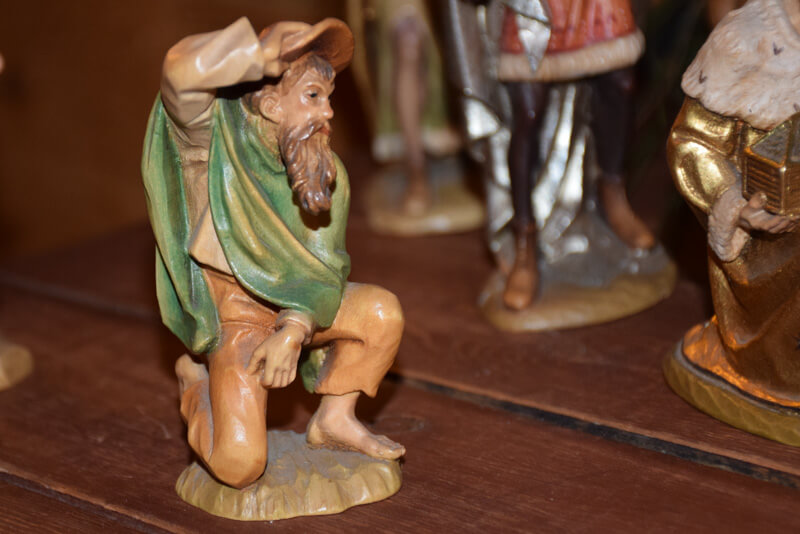
Contempt may even nullify acts that otherwise promote godliness
Forget Being Right
Jesus also told this parable to some who trusted in themselves that they were righteous and regarded others with contempt: “Two men went up to the temple to pray, one a Pharisee and the other a tax collector. The Pharisee, standing by himself, was praying thus, ‘God, I thank you that I am not like other people: thieves, rogues, adulterers, or even like this tax collector. I fast twice a week; I give a tenth of all my income.’ But the tax collector, standing far off, would not even look up to heaven, but was beating his breast and saying, ‘God, be merciful to me, a sinner!’ I tell you, this man went down to his home justified rather than the other; for all who exalt themselves will be humbled, but all who humble themselves will be exalted.”
~ the Gospel According to Luke, Chapter 18, verses 9 to 14, from The Holy Bible: New Revised Standard Version. 1989, Nashville: Thomas Nelson Publishers. (Revised Common Lectionary, Year C, Proper 25, 23 October 2016)
Everyone wants to be righteous.
Everyone wants to know that she is in the right. After all, what kind of misery we live in when we believe that what we’re doing is wrong! This unspoken sorrow is the plight of the abused, the tortured, and those who believe they must say “I’m sorry” even for their most beautiful opinions and convictions. In order to live, let alone to thrive, one must know with conviction that in the most important things one is in the right.
Absent an angel on the shoulder who declares every daily action righteous, on what do people base their essential right-ness? Jesus’ parable describes a Pharisee—someone who genuinely embraced God’s call to live well—who assured himself of his right-ness in two ways. First, he reminded himself (and God) of his proper actions: fasting and tithing. Second, he compared himself to others whom he believed (perhaps quite rightly) did not behave righteously: he assured himself by contempt for others.
By virtue of Jesus’ judgment—this one “rather than the other”—we may conclude that this Pharisee was not in the right. Fasting and tithing are certainly good; thieving and adultery are certainly evil. But doing two and treating perpetrators of the others with contempt is not the recipe for righteousness. Shopping for the food bank and having my bible time every morning are certainly good; but they are not augmented by holding gamblers and swingers in contempt. Contempt may even nullify acts that otherwise promote godliness.
What is the recipe for righteousness? The tax collector’s approach seems to get the job done. But wait: The tax collector has made no attempt to gain or ascribe rightness. He confesses that he is in the wrong. (Is it specific actions he thinks of? Or is it his “sinful nature”? You decide.) And he asks for mercy. His recognition that being in the right is impossible gains him the status of righteousness. Chew on that paradox for a spell. A tantalizing follow-up discussion for the disciples would center on whether and when the tax collector ever learned that his prayer had made him righteous!
Humility contains an inherent difficulty. It is, to borrow Paul’s language from Philippians, a self-emptying exercise (Philippians 2:5-8). In our age of comparative religions and spirituality, we might compare it to Buddhism: to gain righteousness for one’s self, one must set aside the rights to claim anything for one’s self. Before Yahweh, the Lord God Almighty, we can never claim righteousness. All we can do is bring our honest selves before the Ancient of Days and lean on a relationship given to us in Christ.
In Christ, righteousness consists of precisely this relationship—and perhaps nothing more: that we have the privilege of coming with our honest selves before God. When we have exercised this singular right of righteousness, all the future is up to God, who will fill our emptied vessels with the most wonderful things. We can then live well without knowing whether we are in the right, because we know that The Right One is in us.
Filler of Broken Vessels, Jesus Christ: We thank you for the gift of righteousness. We thank you that we are forever members of God’s household, beloved and belonging. Give us the peace and courage to bring our entire, messed-up, dark and complex selves to you, so that you may transform us into blessing. We ask it in the power and presence of your Holy Spirit!
~ emrys tyler

